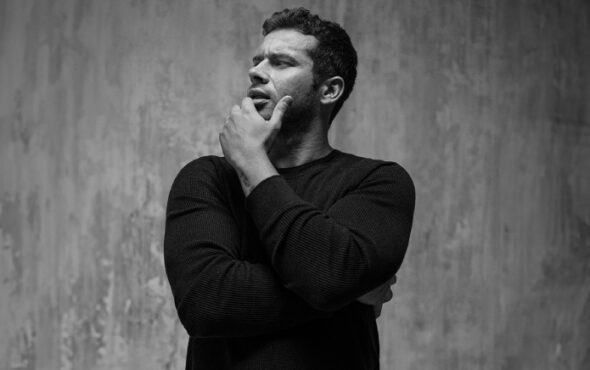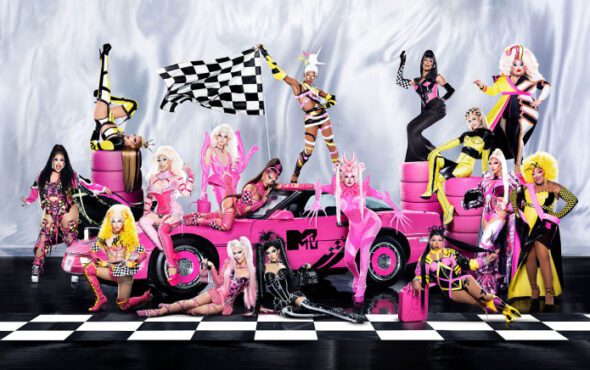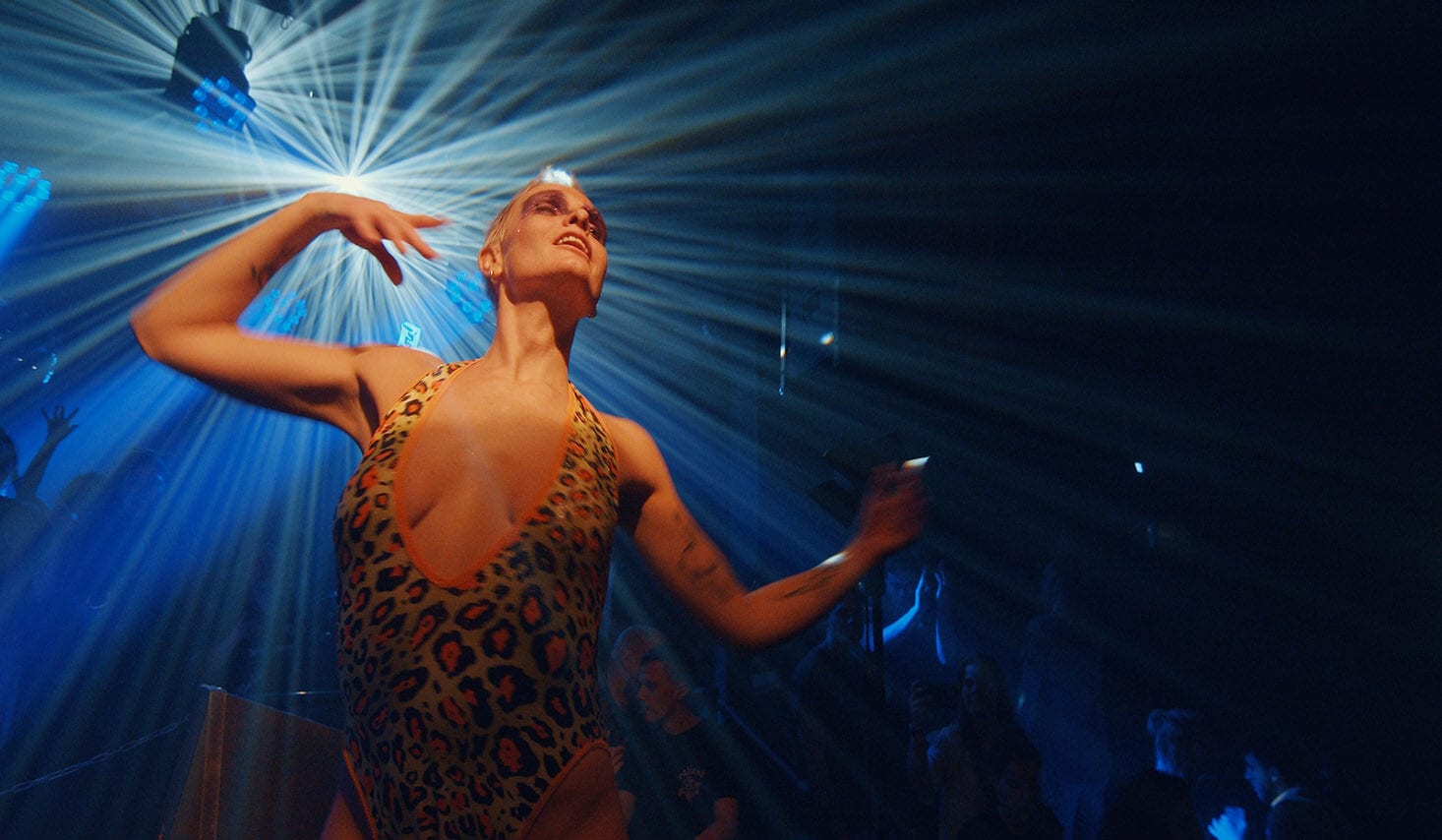
It was a packed room, bodies crammed tightly together and the air heavy with perspiration. But nobody cared because they were in their own worlds, feeling out the rhythm of the music but never losing focus of the communion that is the dancefloor. It was a small room in East London and Honey Dijon was on the decks, so you can imagine how squeezed in we all were. It was also the last time I went clubbing, just over a year ago at the start of March 2020. It seems ludicrous now that it even happened.
That feeling of loosing yourself to the dancefloor is one many of us have sorely missed over the past 12 months since lockdown first began. With the hope of restrictions loosening this summer, we’re optimistic we will be there again soon. But to ease us in in the meantime is a brand new documentary from Glitterbox; one of the world’s most famous dance parties that embraces queer culture.
Where Love Lives tells the story of dancefloor culture and is a celebration of expression, acceptance, and community. While it features contributions from Billy Porter, Honey Dijon, Kiddy Smile and other queer creatives, it centres on the experiences of Glitterbox ambassadors Lucy Fizz, TeTe Bang and The Mx Fit. Through their deeply personal stories we discover the true power of the dancefloor to help people express who they are, connect with each other, and revel in the rich history and cultural impact of dance music.
The hour-long documentary comes with a stomping soundtrack and captures moments on the dancefloor at their most euphoric. It touches on how nightlife spaces have saved lives, has been a haven during some of the most socially challenging periods in history, and gives us the freedom to discover our tribes.
To mark the release of Where Love Lives, we caught up with Lucy Fizz, TeTe Bang and The Mx Fit to speak about the importance of LGBTQ+ spaces, how the art of performance helped them explore their identities, and how the current global pandemic will change club culture forever.
How did the dancefloor help you to discover your tribe?
TeTe Bang: LGBTQ+ spaces are vital to our community as a way to meet and connect with people who have shared the experiences and struggles that come with being queer. I would never have had the opportunity or space to learn my craft our meet my chosen family without iconic spaces like The Black Cap or The Royal Vauxhall Tavern where I first started out. The history that comes with these queer spaces is what attracted me to them initially, but the dancefloor was the space where I bonded with people and where I felt liberated. Because of how comfortable and accepted I felt in those space my bond with the dancefloor grew and I felt a sense of confidence and self-acceptance that I was able to take outside of those spaces and use in my day-to-day life.
The Mx Fit: The dancefloor gave me the opportunity to cross paths with amazing people, witness their stories, learn from them (for example, Lucy Fizz, who helped me with my identity) and connecting with people in ways that might not have been possible in the outside world. Music and dancing unlocks something in people that allows us to bond!
Lucy Fizz: I grew-up in a small town up-north called Burnley. Where I was a teenager there was no LGBTQ+ scene there and I didn’t know anyone who was out. So when I moved to London and discovered parties like Boombox, Trailer Trash and NagNagNag that were packed to the brim with all these fabulous queers dressed in the most outrageous lewks, it was a revelation. I’d finally found somewhere where I felt like I belonged.
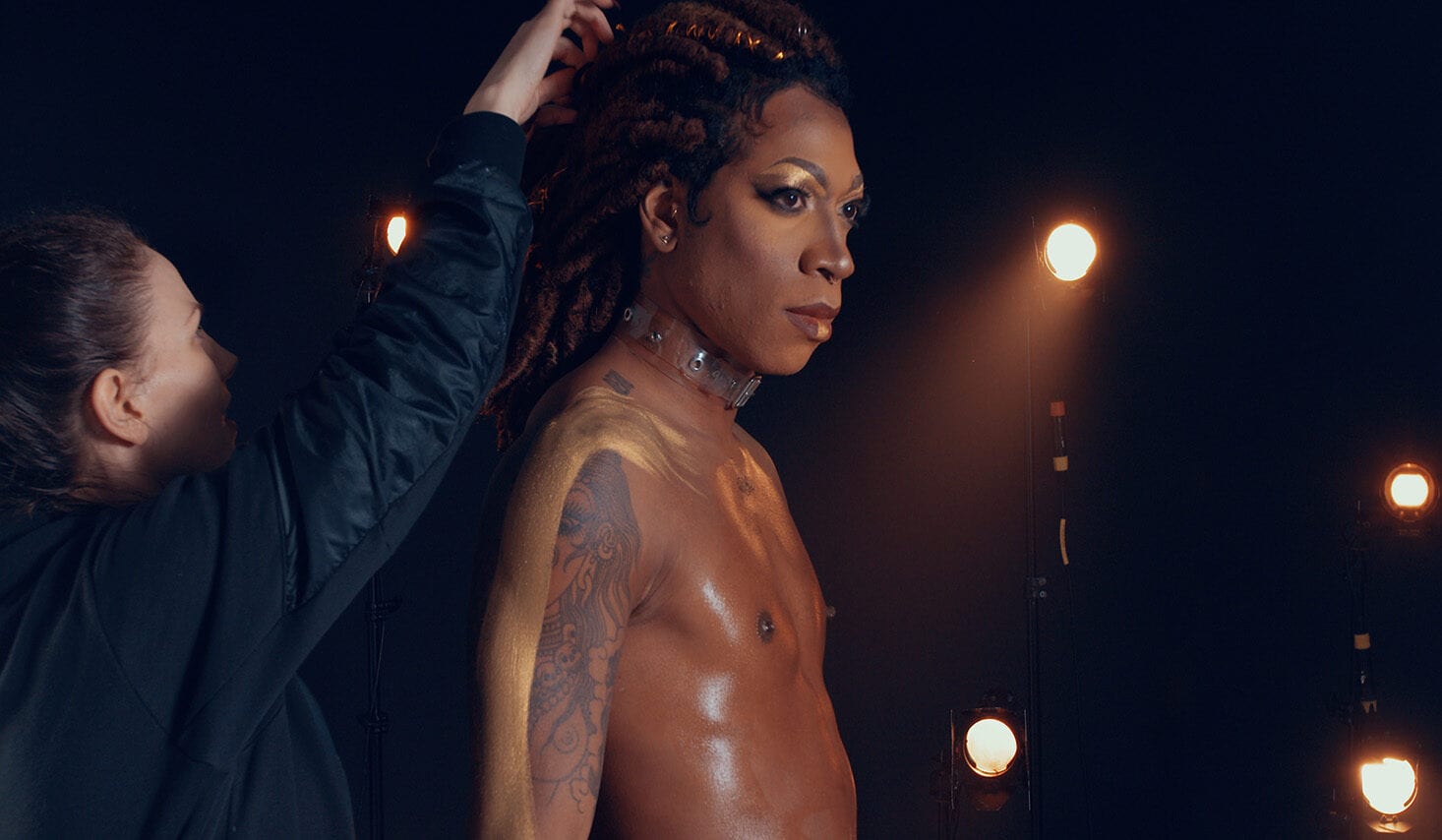
Many people – especially members of the LGBTQ+ community – consider Glitterbox a safe space. How important is it that we continue to have these spaces where we can connect and freely express ourselves?
Lucy Fizz: Unfortunately as queer people we are all too often subjected to hate crimes and attacks. LGBTQ+ safe spaces offer a sanctuary where queer folk are able to express ourselves freely without fear of judgement, discrimination or violence. Pretty much everything in the outside world is geared towards straight and cis-gendered people. Although queer visibility in the media has improved lots in recent years it’s still very important for queer folk to have physical spaces that are specifically centred around us, our needs and our culture.
LGBTQ+ safe spaces are vital for the development of queer community. In a world where society and even biological family can be very hostile to queer people – lots of us discover the love, self acceptance and chosen family in these safe spaces that we often aren’t able to find in the outside world. LGBTQ+ people need safe spaces where we can come together and not just feel safe, but really celebrate our queerness all year round, not just at Pride or during LGBTQ+ History Month. We exist 365 days of the year just like everyone else and we need places where we can feel accepted and cared for.
TeTeBang: It is the most important, as we know the world can be very cruel to LGBTQ+ people and many of our queer venues are being taken away from us. When The Black Cap was taken away from me it broke my heart. It felt like I had lost a home and since then I have tried to actively be a part of creating more inclusive spaces, because I know first-hand how important they were to me in the beginning of my journey. Visibility and diversity is so so important especially for younger queer people who often do not see themselves reflected in the mainstream and I think it’s part of our duty to keep those spaces alive, and Glitterbox is just an extension of that belief.
The Mx Fit: A lot of places can feel very judgemental, and we can easily feel like we stand out if we don’t match the crowd / dress code. And this just triggers something – a feeling of discomfort. Luckily enough Glitterbox doesn’t have “a crowd”. You can come and party with family, friends, lovers and everyone is welcomed. Age, body type, gender… we couldn’t care less! What we want is people to strip off all those layers we put up and celebrate all together. Within these spaces you also get a chance to find yourself, question things free of judgement and repercussions.
How has being a performer helped you explore your identity?
The Mx Fit: Being a performer allowed me to face my fears. I was able to do things on stage that I was too afraid to do in my everyday life, and slowly build a confidence that now allows me to slay, on and off the dancefloor. Performing and playing with my image also helped me to realise that my gender and identity goes way beyond the binary that we’re brainwashed with.
Lucy Fizz: When I first started performing I was just this wild woman doing my thing. I wasn’t very open about my trans identity and I carried a lot of internalised transphobia around with me. I feel super lucky to have been nurtured as a performer in LGBTQ+ collectives like Sink the Pink and Glastonbury’s NYC Downlow. Drag is such a wonderful medium for breaking down the social constructs of gender and performing with these queer collectives where everyone is encouraged to explore and experiment with their identity. I found love and acceptance that I wasn’t able to in the outside world. I found my chosen family on the dancefloor and being trans went from something that I had always been made to feel ashamed of to something that I was celebrated for and that I felt I could celebrate myself.
TeTeBang: Being a performer simply allowed myself to explore who I was. It gave me permission to explore myself and explore different parts who I am and what my story has been, and to accept and love what I have been through. When you are performing there are no social rules that you must follow, there is no expectation except the one that you place on yourself, so it very literally allows you to remove yourself from all the normal restraints and be as free as you want to be. Eventually you start to feel that confidence and energy transfer into your everyday life and you can go through life loving and accepting who you are.
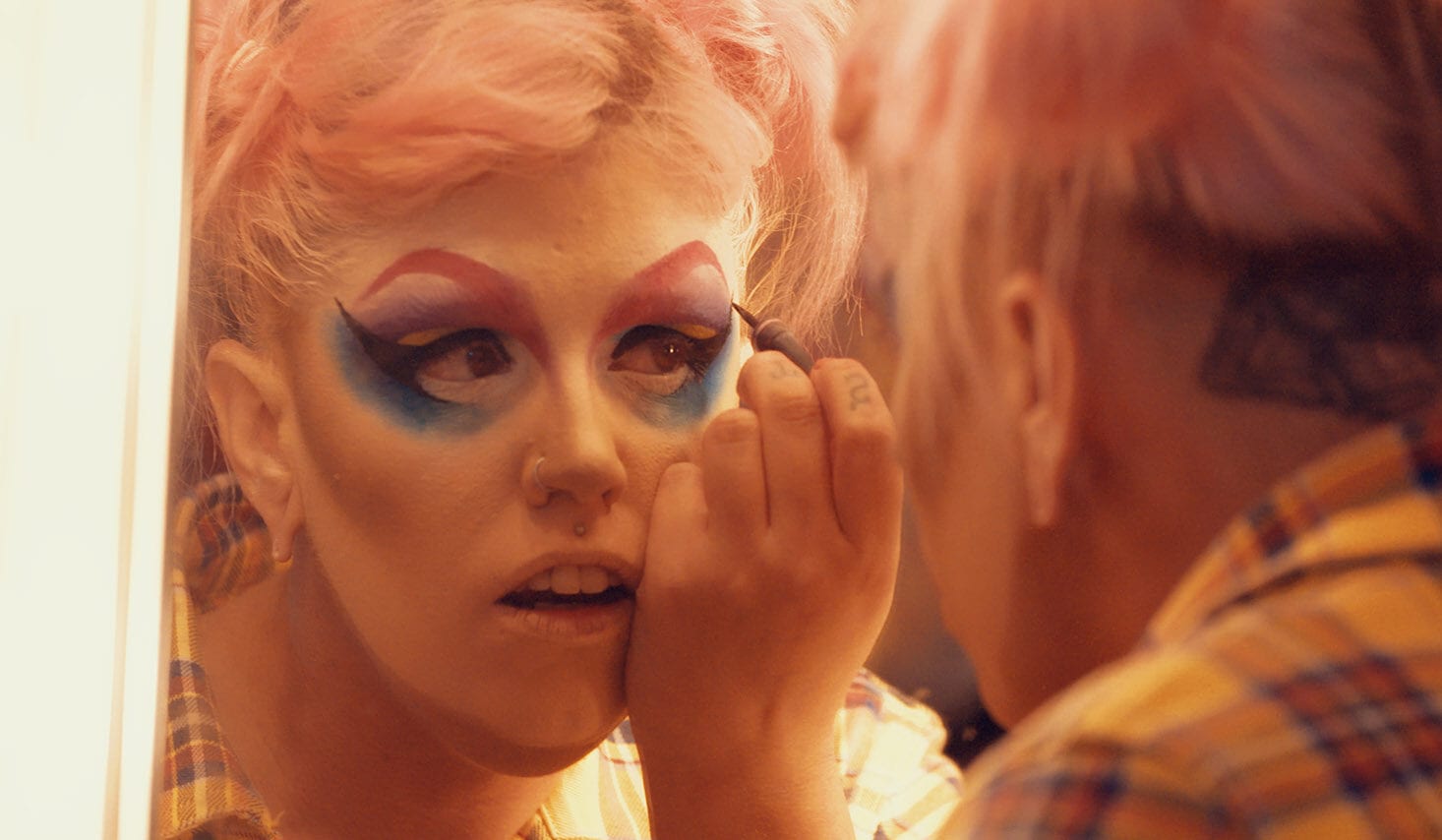
Disco in particular is a music genre that continues to endure the test of time – why do you think that is?
TeTe Bang: Disco is very timeless and it has a positive energy and message that I think everybody can relate to. You can’t listen to disco music and not feel joy and happiness – and that’s something we all need, especially now.
The Mx Fit: Disco was so strong and so meaningful to the generation that lived and experienced it. In this day and age where everything goes off-trend so fast, it’s sometimes hard to keep things alive but I believe disco is contagious (no puns intended). So one way or the other, it will reach you!
Do you think club culture has changed forever due to the pandemic, or do you hope it can return to what it once was?
Lucy Fizz: Club culture is constantly shifting and evolving – new scenes and sounds come and go all the time. I think after the pandemic there will be such a renewed energy and enthusiasm for the dancefloor. You can see it already in how fast everyone is snapping up tickets for events this summer. Defected London sold out in under an hour! I hope that after this forced break everyone will have a greater understanding of the huge social and cultural value that nightlife has to offer and that we can move forward into a new era of more conscious, diverse and inclusive clubbing.
The Mx Fit: I hope it doesn’t go back to what it was! First of all, we are more aware of hygiene. I also hope people will be more grateful for each party we get because nothing is guaranteed. We’ve seen the world can stop if it has to. So let’s party like we never did before and be thankful for each time. I truly believe the energy on the dancefloor will be like nothing we’ve experienced before.
TeTe Bang: I hope it comes back with a bang. I hope that this time away from each other will help us see the value in those things we used to take for granted and also give us a shared experience that we can bond over, and hopefully bring us closer and have more empathy for one another. I think there will be some obvious changes to the technical side of how nightclubs work, but I think we will all need a way to release the tensions and anxieties that the last year has created – and nothing does that better than a stomp on the dancefloor.

